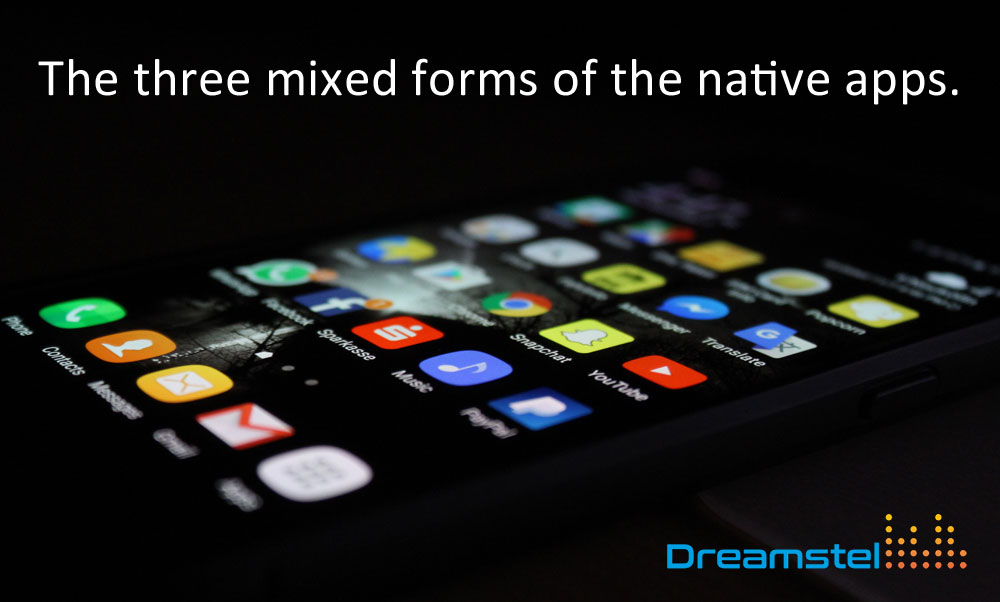 +1-302-213-1128
+1-302-213-1128
 +61 284 880 972
+61 284 880 972
 +91-120-4399820
+91-120-4399820
 +1-302-213-1128
+1-302-213-1128
 +61 284 880 972
+61 284 880 972
 +91-120-4399820
+91-120-4399820
According to a study, Apple and Google App store accounted for more than 220 billion downloads in the year 2019. Each European spends over 90 minutes on apps every day on their smartphones. It is true when a company says: We need an app.
Here we will discuss the advantages and disadvantages for customers and what to keep in mind at the time of mobile application development.

App sales in Germany have increased by 32% to $1.2 billion in 2019. Also, Europe created 2.1 million new jobs. In late 2018, more people are surfing the internet than a static computer. Many companies also started to invest in the digitization of mobile processes for their mobile customers, customer service, or warehouse management with a customized approach.
A systems effort bridges the gap between web creation and naturalization. Based on the standards, the mobile web app runs in a message installed on a mobile phone. A responsive web app works equally well on desktop computers, mobile phones, and MBs.
A native app is designed for hardware and the device interface for any individual device. For the mobile application with the graphical demand needs, specifically, this in-depth system intervention for ensuring optimal performance. The native API enables the developers to access the camera, GPS, data storage and saved contact data. Many different approaches have divided into a spectrum from “web” to “native.”

1. Progressive Web Apps – a progressive web app (PWA) is the web application and it uses so-called service staff to access specific and standardized components of the device. A PWA is called directly with a browser so that it can initiate a Google search on a mobile phone without actively installing the app.
2. Hybrid App – a hybrid app uses an infrastructure and mapping web content. Frameworks such as JavaScript-based Cordova and other UI frameworks such as Ionic provide the framework for mobile devices. The content displayed in the frame is based on web standards and it can also be interpreted by all devices. It is like a picture frame with a variety of hanging tools.
3. Cross-Platform App – this app development tool uses tools like Xamarin, React Native or Unity, developer programs in the language of the tool. For example, C# on Xamarin, the tool only creates the source code. The Net application has run on iOS, Android, and Windows phones. One can’t overlook customizing the apps made through source code depending on the feature set, accessibility requirements for specific device parts, or the involvement of third parties such as Facebook or Google.
1. Cost estimation and development time – now the question arises, what will be the cost of developing a mobile application? A web app is the fastest and hence usually the cheapest. Native apps that have to be explicitly programmed for every device take too much time for adapting numerous platforms and can be more expensive. If it turns out in cases, then only a native app for android is required as this is the device that is standard in the company, and then it will be easy to develop the native app.
2. Functionality and features – the cost of the web application is much less as compared to others because a vast range of functions of a mobile device cannot be installed into development. The main works specifically come first here. Ahead we go, the deeper the interface of the particular device can be used on, and the entire range of devices and app functions can be analysed.
3. App Performance – Native apps can access the hardware device, graphics processors, local memory, and sensor technology of the devices. So, the above classification of an app depends on its performance. The more essential its functions are, the more critical are its performance. It is important to make a comparison with the functionalities that apps offer. An app with a good function web app but having a low feature can work well.
What type of development your company chooses should be defined based on your needs. There is no right or wrong, it just works as per the advantages and disadvantages which come with the apps.

Now, let’s discuss some of the key points which every business owner, app developer as well as service providing company must remember before developing a mobile app:
1. Research – the first thing you need to understand the market, customer demands, and trends, even before giving a technological touch to your business app, you need to do market research.
2. Identify target audience – after the complete research, identifying the right set of audience for your application is very important. The future of the application depends on the target set of users.
3. Choose the right platform – one of the most important questions you need to ask yourself is on which platform you want to create your business app. Be a master of a single platform and later you can move on to the other platforms. Some of the popular mobile app platforms are iOS, Android and Windows.
4. Set Plan of Action – Make sure you understand the entire process. a robust business app takes a lot of time and effort. It also passes through various stages.
5. Know your budget – knowing your budget and allocating it properly among each stage of app development is important.
6. Think different – people always want something different. It is only because they feel that the brand they have chosen has something unique to offer.
7. Smooth and efficient – your business mobile app must be smooth and properly working. If it takes a lot of time to load, it may prove to be fatal.
8. User experience – if you fail to provide users an excellent experience, then there is no reason for them to come back to your app to use it.
9. Focus on marketing strategy – there is no point in building a business app if you are not focusing on how to market it and make it available to potential users.
10. Testing - it is important to test your mobile application before you launch it.
Leave a Message
Recent Blogs
-December 10, 2021: Learn About Package Development Salesforce
-November 26, 2021: The Power of IT Solutions for the Retail Industry
-November 11, 2021: Wide Spectrum of Salesforce Application Development Services
-November 02, 2021: Why Should You Use The Package Development Model In Salesforce?
-November 01, 2021: All You Need To Know About Integrating Tableau Into Salesforce
View More Blogs...